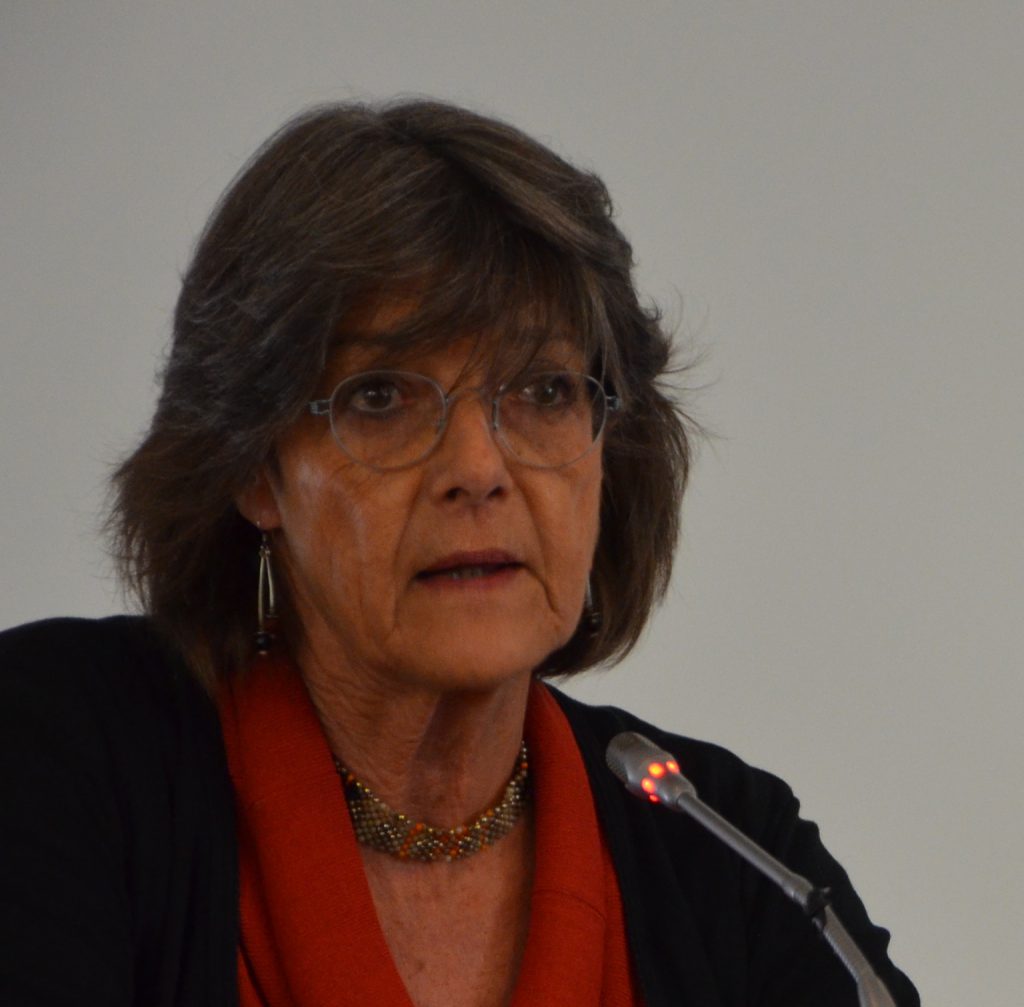In 2022, EuroMed Rights celebrates its 25th anniversary! To mark this milestone, we asked members to tell us what EuroMed Rights meant to them and their organisation.
Catherine Teule is the former Vice-President of the European Association for the Defence of Human Rights (AEDH), and former Vice-President of the French League of Human Rights (LDH). She also sat in EuroMed Rights Executive Committee from 2015 to 2021, first as a member and then as Vice-President. Catherine is particularly interested in issues related to migration and the right of asylum. She has authored many articles and briefings on these themes and provided training sessions at community and trade union levels.
“I joined EuroMed Rights via AEDH, where I was following closely the European migration policies. We always tried to bring a certain dimension on European issues, to analyse them from a different perspective. It was not that easy at the beginning as for many members and partners, any bad step or negative development was to blame on “Europe’s fault”. It was therefore necessary to make them admit that the Southern Mediterranean countries had serious problems too, and that this should be denounced in the same way. It worked and that shows how important and impactful the work of the EuroMed Rights network can be!
What role has EuroMed Rights played on migration issues?
The Mediterranean is a common space that belongs to all of us, from North and South, and that should be totally open. In that respect, our Working Group on Migration has definitely been a constitutive element of a network with a common vision of the issues pertaining to the rights of migrants and asylum seekers. We have always tried to carry out a consistent and coherent work by mobilising and involving the members of the network, from the north and the south, even if it is true that they are more numerous in the South…
The support to civil society organisations in the South is key in EuroMed Rights’ work, including on migration issues. We have succeeded in creating sub-regional networks for the Maghreb and Mashrek, so that members work together on common issues, with the support and coordination of EuroMed Rights’ staff who have played an important role in strengthening these sub-regional groups! Another strength of the network that we can be proud of, is its capacity to develop and conduct high-level advocacy activities which have made EuroMed Rights a reliable and trusted partner on migration issues with EU officials and Member States. It is fundamental to make the voice of the network heard by the EU institutions.
Any examples or suggestions?
We have secured an open channel for discussions and exchange with the European Parliament (EP) in particular. MEPs intervene in the Working Group on Migration and the Working Group is invited to participate in hearings at the European Parliament. The network is better known, more often solicited but still, there’s more we can do to feed the discussions and challenge some policies at the EP level, including on the issue of migrant women or family reunification. More regular contacts are needed between EuroMed Rights and the EP. I believe EuroMed Rights should work on the development of a systematic consultation by the EP when key documents are being prepared for example.
This is definitely something to pursue!”
Catherine Teule (France), former vice-president of EuroMed Rights

